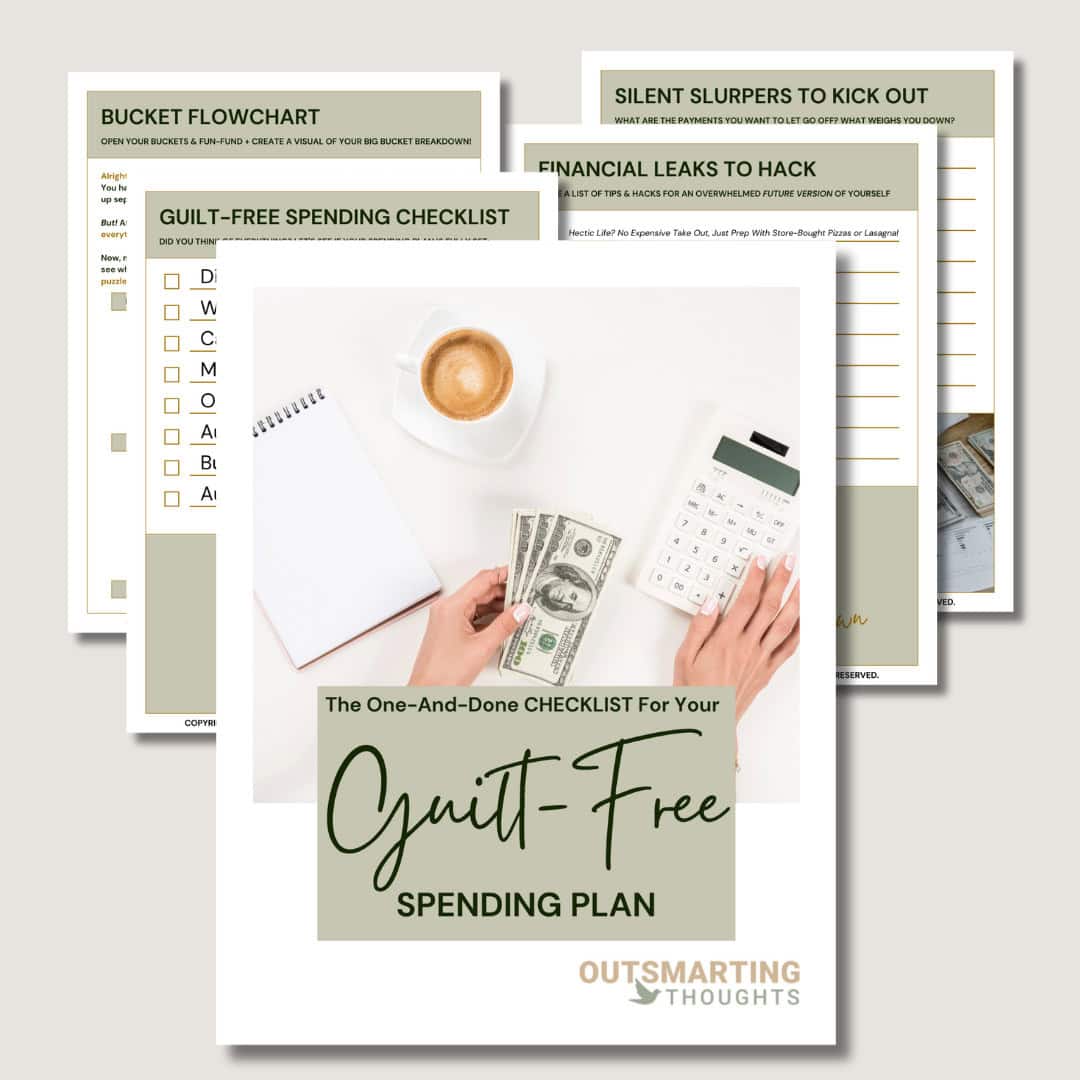Wanna know how impulse buying statistics reveal way more than just spending habits? You’re about to see the real reason it keeps sabotaging your plans. This post is dedicated to exposing what’s actually happening when you keep swiping your card, filling your cart, or clicking ‘buy now’ when you didn’t mean to. These stats won’t just shock you. They’ll liberate you.
A common misconception of people who ‘fall for’ impulse buying? The identification that YOU are flaky or bad with money. All it means is that part of you is still getting hijacked by old emotional patterns. You say you’re just ‘treating yourself’. But deep down, something else is taking over, and calling the shots. And guess what. That lack of control? It’s NOT harmless. It’s the quiet thief of your self-respect, your clarity, and the life you could have built.
We overachievers want to have our shit together. We hate wasting time, energy, and money. But when you’re exhausted, burned out, or emotionally drained, it’s easy to fall back into buying stuff just to feel something. You tell yourself it’s a small thing. But the truth? It seriously chips away at your sense of power. Every. Damn. Time.
What you’re going to learn is how incredibly common this is (with alllll the stats to prove it), why you’re not weak or broken, and how to recognize the patterns before they wreck your progress. After you have learned to see impulse buying for what it really is (a symptom of emotional hijacking) you’ll finally be able to reclaim your decision-making, rebuild your kick-ass confidence, and start spending in alignment with your real priorities.
This post is all about impulse buying statistics, so you can finally get your power back where it belongs: in your own hands.
Impulse Buying Statistics
Impulse buying seems harmless until you realize what it’s actually costing you. Because. At its core, impulse buying is about losing control. It’s the same mechanism that takes over when a kid throws a tantrum, but this time, it’s dressed in grown-up spending patterns. One part of you wants to stay focused and intentional. The other part storms the stage and steals the mic.
That’s not just frustrating. It’s a sign you’re still being run by emotional shortcuts. The part of you that impulse buys doesn’t care about strategy, alignment, or long-term success. It just wants out of the pain of current-day reality, and it needs to be NOW.
But if you truly are an overachiever, you’re not here to half-ass life. You’re here to become the version of you that plays full-out. That means learning to see these patterns not as shameful, but as powerful wake-up calls. So you can stop letting your impulses run the show, and start living like you mean it. So let’s dive in!
It’s Not Just You! It’s Practically EVERYONE!
The next time you kick yourself for buying something dumb, PLEASE, pause. Because according to recent research, 88.6% of U.S. adults admit to impulse buying. That’s nearly everyone. So. NO. You’re not the ‘outlier’. You’re just operating in a world that constantly nudges you off track. It’s really HARD to stay focused enough to spend intentionally!
RELATED POST:
Intentional Spending: The CEO-Mindset And AntiDote Against Overspending & Impulse Buying
And it’s not just the occasional splurge. The average person spends $314 a month on impulse purchases. That adds up to over €3,500 a year!! Other things you could have done with that? You could’ve flown to the Maldives. Funded a savings buffer, paid off a chunk of your debt, or finally invested in something that actually supports your goals. But. Instead, your energy and income are being hijacked by tiny unplanned decisions that barely register in the moment.
This isn’t about shaming you tho! This is about proving that your brain is behaving normally, because it’s swimming in a world engineered for emotional spending. Those targeted ads, last-minute sales, and manipulative pricing tactics? They’re not innocent. They are meant to override your strategic thinking and activate your impulsive self.
Let’s not sugarcoat it: modern consumer culture is a trap. And if you’re someone who wants more from life, more purpose, more fire, and more freedom, then noticing these patterns is your first act of rebellion. Rebelling against impulse buying isn’t about being boring. It’s about refusing to hand over your future to a momentary urge.
Impulse Spending Is Emotional Coping In Disguise
You don’t impulse buy because you’re irresponsible. You impulse buy because something inside you needs relief. And it needs it. Fast. Research shows that 79% of impulse purchases are made for emotional reasons. People buy things to feel better. To feel in control. To feel seen, soothed, or energized.
Especially when stress hits, and impulse buying spikes by 18% under pressure. You’re not a shopaholic. Don’t identify with something you don’t want to OWN! You’re emotionally depleted & you’re freakin’ tired. Stretched too thin. It’s very natural that, because of that, your brain reaches for the easiest dopamine hit it can find: Buy now, think later.
And let’s not forget: late-night scrolling doesn’t help either. Your willpower is lowest when you’re exhausted, and the digital shopping world knows it. You’re most likely to impulse buy when your brain has checked out, but your insecurities are wide awake. The truth is, this pattern has less to do with poor money habits and way more to do with unprocessed emotions. If you’re going to break free, you need better tools for emotional regulation, not a tighter budget.
Owning a cashflow strategy is a skill that’ll give you some serious advantages in life. I think budgeting is an aligned action with taking life seriously, and I seriously believe life will reward you for it. If you’re not into high-maintenance strategies like ‘tracking your spending’ and just want to sit down ONCE to direct your financial future, our Guilt-Free Spending Plan Printable is the right cashflow strategy for you! Don’t let anybody outsmart you out of your own money and start budgeting today by simply filling out the form below:

Want a free
ONE-AND-DONE CHECKLIST for aGUILT-FREE SPENDING PLAN? Free up your bandwidth and stop overthinking with this
FREE One-And-Done Checklist for your Guilt-Free Spending Plan!
Simply fill out the form below to get this strategy
delivered straight to your inbox!
You’re Not Weak! You’re Being Played!
Let’s move past fluffy wishful thinking: willpower alone won’t save you. The system is, unfortunately, working against you.
Retailers aren’t just hoping you make spontaneous purchases. They design every pixel of your shopping experience to make sure you do. From urgency timers to limited drops, up to 25+ psychological triggers are baked into e-commerce sites and stores. They’re not selling products. They’re engineering micro manipulations that overwhelm your logic and hijack your impulse center.
Add social media to the mix, and it becomes a full-blown battlefield. 76% of Gen Z and Millennials say they’ve bought something impulsively after seeing it on social. You’re not weak! You’re trapped in a system designed to pull the rug! The algorithms know your stress patterns, your favorite colors, and your late-night cravings. They KNOW when to strike.
And it’s working. Over half of impulse purchases now happen online. That means your wallet is basically bleeding through your screen. What I would like you to consider is this: you weren’t meant to win this game by default. But now you’ve seen the tactics. And that means you’ve got options. You’re no longer just reacting, but observing. And that? That alone is power.
Regret Means You’re Already Waking Up
If you’ve ever felt that post-spending shame spiral, take a breath. It means your inner compass is working. 64% of Millennials regret their impulse purchases. Not because they’re failures, but because they care about alignment. And if you’re on our site, that I can tell…. You do too.
Regret gets a bad rap. But it’s not a flaw. It’s a flashing red light saying: you WANT to do better. It’s that part of you that’s tired of sabotaging your goals for temporary highs. The part of you that’s craving groundedness, clarity, and the full-bodied thrill of self-respect. And that’s exactly where your power starts.
You’re not meant to live a life on autopilot. You’re not here to waste your ambition on clearance sales and overnight shipping. Life is naturally dedicated to GROWTH! You’re meant to build something. Something that excites you. Something that makes you proud. And something that feels real and intentional! So to get there, it’s time to end the financial denial.
RELATED POST:
How To Pull Yourself Out Of Financial Denial: An Overachiever’s Strategy To Get Back In Control
Next time your finger hovers over the ‘Buy Now’ button, ask yourself: is this purchase aligned with who I want to become? Or is it another emotional hijacking dressed in free shipping? You really don’t need to be perfect about it. However. You do need to stay awake.
Impulse Buying Statistics (Summary)
Impulse buying isn’t just about spending. It’s about losing self-control. The same emotional override that makes a kid throw a tantrum is what drives adults to click ‘buy now’ when they’re stressed, bored, or emotionally maxed out. This post peeled back that psychology and reminded you that it’s not about weakness, but about strategy.
What you learned today is that impulse buying is normal, predictable, and heavily manipulated. You’re not a lost cause, but stuck in a targeted system. And once you can recognize those emotional triggers, you can begin to break free by using self-awareness, rebellion, and emotional regulation instead of guilt.
Imagine a life where your spending reflects your real priorities, not your passing moods. Where your energy builds a future you’re obsessed with, instead of leaking into random purchases. Where you’re finally not just reacting. You’re leading.
I wish you the fire to rebel against smallness, the guts to pause before you swipe, and the strategy to spend in alignment with who you’re becoming. Go get it, you beautiful powerhouse!
This post is all about impulse buying statistics, so you can finally get your power back where it belongs: in your own hands.
We aim to help you out as much as possible, but please keep in mind that the content is only for general informational and educational purposes. We offer our services based on independent research and life-experience only, and so our strategies can never serve as a substitute for professional advice. Trust me, we do not have 'everything figured out', are all still huge works in progress, but hey, what works for us, might work for you too! This is allll up for you to decide... It might not work for you, and that's okay, so cherrypick the stuff that resonates and leave the stuff that doesn't, and let's go!








